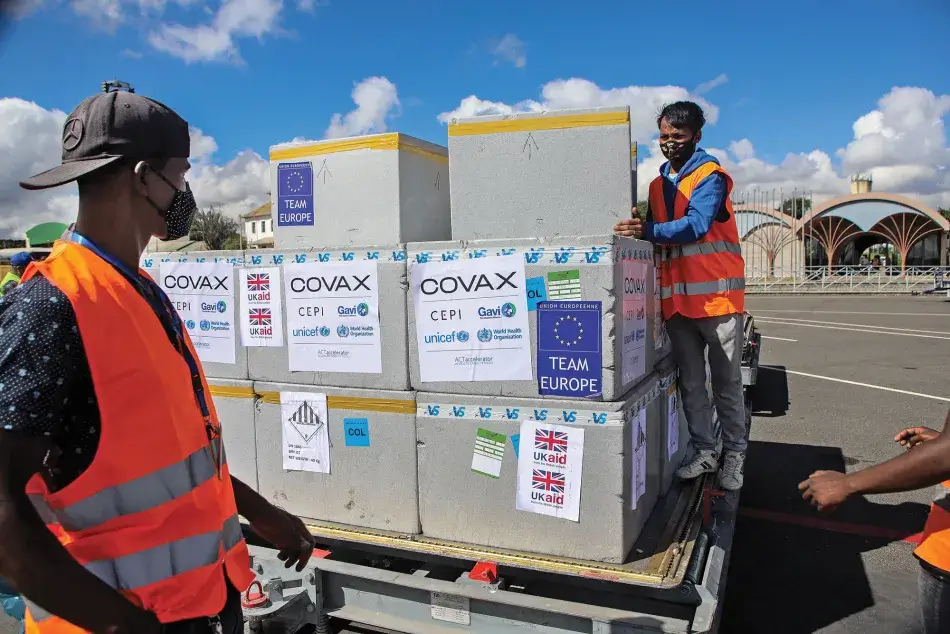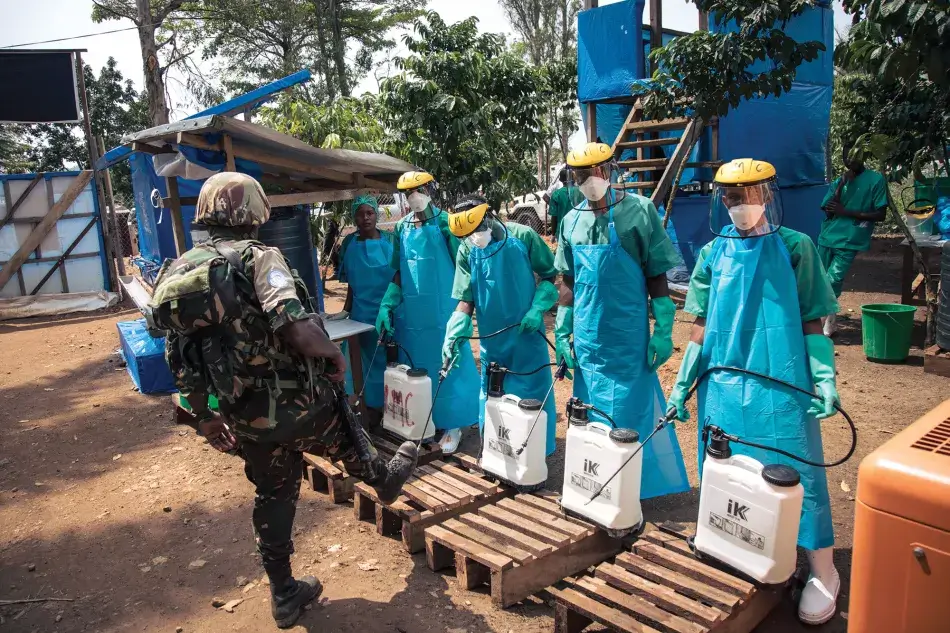
By Kathryn Moffat, Senior Program Officer for Global Security and International Affairs at the Academy
Wars and conflicts in the twenty-first century are putting tremendous strain on the strategies traditionally used by humanitarian responders to help those in need, particularly strategies that deliver effective health responses. Recent civil wars not only account for a larger proportion of ongoing conflicts, but they have become more protracted with more actors with fragmented affiliations. Some of the world’s deadliest places are not formally war zones but areas of extreme political and criminal violence, such as in Venezuela, Mexico, Guatemala, and El Salvador. Providing humanitarian aid amid urban warfare calls for strategies that are different from the ones used in rural settings, where humanitarians have commonly operated in the past. Ruthless deliberate attacks on hospitals, schools, and civilians, as well as sexual and gender-based violence, form part of many of these twenty-first-century conflicts. Humanitarian health workers and health facilities are at growing risk of attack as the normative and legal framework that has traditionally regulated war has become less protective. Geopolitical rivalry and perceptions of a weakening commitment to humanitarian norms are further undermining traditional humanitarian approaches. At the same time, the risk of infectious diseases of pandemic potential intersects with conflict-related health and humanitarian needs, presenting additional challenges for humanitarians.
Against this backdrop, the COVID-19 pandemic has threatened the health, economic, and social well-being of the world. The pandemic exposed and amplified the lack of political solidarity and cooperative mechanisms needed to address common threats, thereby generating a global health and security environment that presents further obstacles to the delivery of humanitarian aid.
The Academy’s project on Rethinking the Humanitarian Health Response to Violent Conflict, led by Jennifer M. Welsh (McGill University), Paul H. Wise (Stanford University), and Jaime Sepulveda (University of California, San Francisco), was designed in response to these challenges. Launched in 2019, the project is helping to define new strategies for the effective provision of humanitarian health responses. Its work to date has been organized around three core principles: 1) integrating scholarship that has tended to occur within discipline-specific silos, 2) convening ongoing and substantive dialogue with victimized communities and humanitarian practitioners in the field, and 3) engaging with disciplines that help shape local and global norms, such as poetry, fiction, and the visual arts. The project has carried out a number of activities, including fieldwork to explore the humanitarian implications of the response to COVID-19 amid unprecedented migration along the U.S.-Mexico border (these results will be published in the coming months) and work focused on global cooperation and pandemic control. Two new research papers from the project (forthcoming this spring) build on this last area of focus.
The first research paper, International Cooperation Failures in the Face of the COVID-19 Pandemic: Learning from Past Efforts to Address Common Threats, authored by Jennifer M. Welsh, contributes to the wider dialogue taking place internationally to enhance technical interactions among scientists and public health officials to improve global preparedness for and responses to pandemic disease. Welsh identifies the lessons that can be learned from historical or analogous efforts to strengthen state cooperation in situations of intense geopolitical rivalry and risk. Her paper builds on research in the international relations literature as well as workshops and interviews that drew on the expertise of Academy members and others working on these issues. By looking at how competing powers have created “islands of cooperation” to address threats such as climate change or chemical and nuclear weapons, Welsh’s paper generates insights to help foster state cooperation to enhance humanitarian efforts, stem the tide of the COVID-19 pandemic in zones of conflict, and improve preparedness for potential future pandemics.
Welsh examines how cooperation failed during COVID-19 and describes how pandemic preparedness and response efforts that were designed prior to COVID-19 might shed light on the origins of these cooperation challenges. She illustrates the ways in which institutions for international cooperation could be designed to overcome the cooperation problems that have impeded global efforts to prepare for and respond to pandemics. In addition, Welsh assesses some proposed reforms, identifying potential pitfalls as well as areas of opportunity. Among the key findings, she notes that, even in moments of crisis, institutions that could facilitate global cooperation often fail to emerge. Policy-makers therefore must consciously seize these moments to bring about reform before momentum is lost.
Building on the analysis of responses to other common threats, Welsh recommends that policy-makers and diplomats seeking to foster successful cooperation on pandemic preparedness and response should understand and confront the incentives shaping state behavior; understand and engage with political dynamics and channel them productively; and take the long view, recognizing that cooperation takes time, and smaller “clubs” can sometimes launch new initiatives to improve cooperation even when not all states are interested in membership.
International Cooperation Failures in the Face of the COVID-19 Pandemic: Learning from Past Efforts to Address Common Threats concludes by offering recommendations to apply these lessons to current efforts to reform the global health architecture. The paper also identifies several specific priorities for policy-makers in the near term. These include addressing the economic and political barriers to compliance with existing regulations; having targeted reforms to help the World Health Organization (WHO) increase its ability to respond to COVID-19 and future infectious diseases of pandemic potential; filling existing gaps in cooperation by creating a stronger global surveillance network along the lines suggested by the Independent Panel for Pandemic Preparedness and Response and the G20 High Level Independent Panel; creating a new head-of-state council to mobilize political will; and establishing a permanent platform that can help ensure equitable access to diagnostics, treatments, and vaccines.

The second paper, Peace Operations at the Intersection of Health Emergencies and Violent Conflict: Lessons from the 2018–2020 DRC Ebola Crisis, by Dirk Druet (McGill University), presents recommendations for how existing UN peace operations can tailor their actions to facilitate an effective response to pandemics, learning from past cases in which efforts to deliver humanitarian aid in areas of armed conflict have overlapped with peace operations during disease outbreaks, such as the Ebola epidemic in the Democratic Republic of the Congo (DRC) in 2018. Because these missions are designed to mediate peace agreements, protect civilians from violence, and combat armed groups, their work can create tension with humanitarians who, to avoid politicizing their presence and losing access to people in need, operate based on principles of strict neutrality and independence. When an outbreak of Ebola virus disease was detected in an area of active armed conflict, the relationship between peacekeepers and humanitarians became even more complex. Taking a “no regrets” approach to stopping the spread of Ebola, the World Health Organization initiated a large-scale emergency response, which affected the conflict in ways that ultimately undermined efforts both to promote health and build peace in the DRC.
The paper examines how the health response impacted the conflict, the roles peacekeepers played during the response, and the lessons this experience can provide about security, perceptions, and trust for future international efforts to respond to multidimensional emergencies in conflict environments. The paper draws on a series of interviews Druet conducted with key individuals involved in the response. The paper was refined based on feedback from a workshop in October 2021 that included scholars, humanitarian leaders, and representatives from international organizations, such as the WHO and the UN Department of Peace Operations (UNDPO).
Druet analyzes the intersection between health and conflict in Congo to explain the response by the population and by armed actors to the health crisis in 2018–2020. He highlights how the origins of the DRC’s health system in colonial strategies that exploited human labor have shaped how public health efforts are understood and perceived today. Druet also reviews the role that the United Nations Mission in Liberia (UNMIL) played in establishing large-scale emergency operations during the 2014–2016 West African Ebola crisis. He describes what the international community learned about tailoring responses to local contexts from this earlier crisis, when it provided logistical resources that facilitated the efforts of both local and international authorities to ramp up their response to the pandemic.
Druet explores the conflict dynamics and the context of the peace operation in the DRC during the 2018 Ebola crisis, examining how the decisions that the WHO made in order to operate within a complex political and security climate – including the way its actions transformed local economies in ways that gave some security and business actors an interest in prolonging the crisis – generated distrust for health responders’ motives, which in turn contributed to public resistance to Ebola response measures and violence against health workers, and ultimately undermined the health response and accelerated the Ebola outbreak.
Druet offers a series of recommendations aimed at the WHO, the United Nations Department of Peace Operations and Department of Political and Peacebuilding Affairs, diplomats, and international humanitarian organizations for how future emergency health responses in active conflict situations can be better conceived, planned, and executed. Some of the recommendations include:
- Carry out a thorough diagnostic of the political, economic, and conflict context for each future health response to help international health actors better understand how their actions may affect the conflict.
- Recognize that working with national governments or UN peace operations that are parties to the conflict may undermine the public’s trust in the neutrality of public health responses; and ensure that peace operations provide security without coming within close proximity to health responses.
- Balance international concerns about the potential for a pandemic and the impulse to prioritize the public health response with the risk of doing harm. If public trust is lost, prioritizing the public health response at all costs could have the opposite of the intended effect, ultimately exacerbating the conflict and thereby slowing the health response.
- Leverage the unique logistical capacities that peace operations can provide to jump-start emergency health supply chains and service delivery, while maintaining a clear distinction between the mission and humanitarian actors.
- Combine localized approaches with large-scale international responses, recognizing that the approaches of peace operations to protect civilians from violence and adapting to localized community protection strategies can help health responders understand and adjust to local community structures, customs, and economies.
Outreach and Distribution
The two research papers as well as policy briefs that highlight the recommendations in each will be published in spring 2022. The research findings will be shared with key audiences, including members of Congress and their staff; appropriate individuals in the Department of State, the Department of Defense, and the National Security Council; diplomats from member states in the UN and WHO; leaders of NGOs and international organizations; humanitarian practitioners; and scholars working on relevant topics.
The project has hosted one event so far to share the findings of the paper by Jennifer M. Welsh: a meeting in Geneva in November 2021 co-hosted with the Canadian Permanent Mission to the World Trade Organization, the United Nations, and the Conference on Disarmament. The participants included diplomats from fifteen countries and the European Union. The event preceded the Special Session of the World Health Assembly that considered the creation of a new international instrument for pandemic preparedness and response.
International Cooperation Failures in the Face of the COVID-19 Pandemic: Learning from Past Efforts to Address Common Threats and Peace Operations at the Intersection of Health Emergencies and Violent Conflict: Lessons from the 2018–2020 DRC Ebola Crisis are available at amacad.org/humanitarianhealth. To learn more about the project on Rethinking the Humanitarian Health Response to Violent Conflict, visit amacad.org/humanitarianhealth.